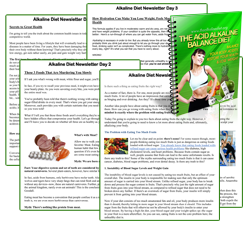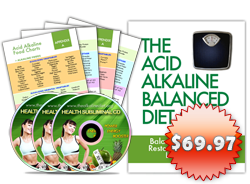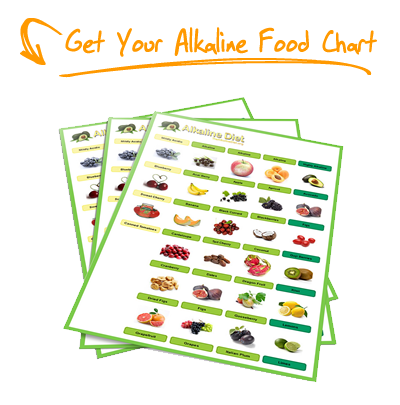Hormones in Milk
Posted on 17. Mar, 2013 by Emma Deangela in Alkaline Diet Tips, Blog
 Most American children today wake up to a glass of warm milk or a bowl of cereals with generous amount of the white liquid. From our ancestors’ time until now, kids have been drinking up milk on a daily basis, believed to be the complete food perfect for growing kids to ensure strong bones and healthy body. But are we still drinking the same milk our ancestors used to have? Is it really as good as we were made to believe?
Most American children today wake up to a glass of warm milk or a bowl of cereals with generous amount of the white liquid. From our ancestors’ time until now, kids have been drinking up milk on a daily basis, believed to be the complete food perfect for growing kids to ensure strong bones and healthy body. But are we still drinking the same milk our ancestors used to have? Is it really as good as we were made to believe?
Sadly this is not the case. According to Dr. Ganmaa Davaasambuu, Ph.D. (environmental health) who is also a Harvard scientist,
“The milk we drink today is quite unlike the milk our ancestors were drinking…The milk we drink today may not be nature’s perfect food.”
The Sad Truth
In a study published by the Journal of Agriculture and Food Chemistry, a concoction of different kinds of antibiotics, painkillers and yes, growth hormones were found by scientists in a glass full of milk. The chemical residues that were found in samples of milk from goats, cows, and even humans, are from different chemicals used in treatment of animal and human diseases.
Some 20 active pharmacological substances tested positive in various milk used in the study as well as the hormone 17-beta-estradiol which is a form of the sex hormone estrogen.
A highly sensitive testing method that scientists call Gas Chromatography-Mass Spectrometry, was used in the research, ensuring accuracy in the test.
What was alarming in the results was the fact that the highest amount of drug residue and growth hormones were in cow’s milk, the most common source of dairy products consumed by children and adults everywhere.
As far back as 2006, Davaasambuu had been sounding the alarm – “Among the routes of human exposure to estrogens, we are mostly concerned about cow’s milk, which contains considerable amounts of female sex hormones.”
She also added that Dairy products account for about 60-80% of the estrogen consumption by humans.
Where did those hormones come from and how do hormones impact our health?
The Business of Selling Milk
The dairy industry is in the business of making money and like most businesses quality and ethics are often sacrificed on the altar of profit. Researches tend to believe that the drugs and growth-promoting hormones are routinely given to cattle and milking cows at some point in their lives. They are also often present in contaminated feeds.
Some 18 percent of US dairy cows have been reported to be injected with artificial growth hormone, naturally occurring in bovine, called recombinant bovine somatotrpoin or rbST also called the recombinant bovine growth hormone or rBGH. This artificial hormone forces the cattle’s bodies to produce more milk than usual with an increase of about 15 percent.
The US FDA has ruled that rbST as safe, however many nutritionists and scientists disagree. In Canada as well as the EU, rbST is banned and consumers buy more of organic milk.
Another factor could also be the fact that most dairy farms nowadays milk their cows for 300 days or more each year. For most of that period of time, their cows are carrying calves. When cows are in later pregnancy, more hormones do appear in milk.
Cows producing milk in late stages of their pregnancy give off more than 33 times of the estrogen compound or estrone sulfate as compared to non-pregnant cows.
According to a study conducted by Dr. Ganmaa’s team on Japan’s modern milk, there is 10 times the level of hormones called progesterone in it compared to Mongolia’s raw milk. Mongolia is still practicing the traditional way of herding wherein milk solely for consumption of humans is acquired only for five months in a year. If a cow is pregnant it is milked only in its early stages. Due to this system, the quantity of hormones found in their milk is much lower.
Now the underlying problem is that when somebody ingests milk with hormones, their health is adversely affected as per existing studies.
The Cost to People’s Health
A study conducted in 2008 with Dr. John Vicini on the lead, compared milk samples from rbST-free, conventional and organic milk. Results showed samples of the organic milk had low IGF, a growth factor that is insulin-like, a by-product of rbST. In fact it posted the lowest in the samples. IGF is linked to cancers in humans.
The Causing and Worsening of Cancer
The potential for risk of cancer is large in dietary hormones. The insulin-like IGF-1 is a powerful growth hormone. It has been proven to be a “fuel cell” to any forms of cancer. It has recently been linked to the increase in breast, colon and prostate cancers and is suspected of promoting or worsening all cancers.
This information should be of particular interest to women considering that 40 percent of females nowadays between 40 to 50 years old have reported to be afflicted with breast cancers.
The hormones that are naturally-occurring are identical in cows and humans. Thus for every 12-ounce –carton of milk that a woman drinks, she doubles the amount of this hormone in her body. Not only does the IGF-1 cause the rise in cancer rates but also the growth of bacteria that is resistant to antibiotics.
The Dairy and Acne Connection
In the late 60’s, Time magazine published a study made by Dr. Jerome K. Fisher. He concluded that drinking milk causes acne. His conclusion came after observing some 1,088 of his patients in a period of 10 years in California where he has his dermatology practice. He later submitted his findings to the American Dermatological Association.
According to Dr. Fisher, some teenage patients of his were consuming milk, as much as 1 gallon per day. Then he recommended to them to reduce their daily milk intake and their acne noticeably subsided. Dr. Fisher explained then that milk that came from a pregnant cow has a high level of progesterone. This breaks down and turns into androgens which then produce sebum a waxy substance which is secreted by acne causing sebaceous glands.
Fisher was quoted as saying,
“about 80% of the cows that are giving milk are pregnant and are throwing off hormones continuously.”
A newer research conducted by Canadian dermatologist Dr. F.W. Danby supported Dr. Fisher’s claim. His study, confirming the dairy-acne connection was published in the medical journal Dermatology in February 2005.
Impact on Children
Should children continue to drink milk?
One frequent concern raised about milk is weight gain especially among children and teens. The IGF-1 hormone in milk is for the quick growth of infants and newborns; as such it causes obesity in older children in addition to adults as they have no more room for physical growth.
Another major concern is the implications of increased hormones on children. In a 2007 study of the Harvard School of Public Health that was published in Nutritional Journal, prepubescent boys and girls in Mongolia posted an increase in their hormone level after drinking American milk for a period of one month. The team of researchers took blood samples from three groups of children with ages ranging from six to eleven. They compared the samples taken before and after they drank milk produced in the USA.
Dr. Ganmaa, the lead scientist in this study expressed alarm as,
“We don’t know what the larger implications are.”
Busting the Milk Myth
In spite of all these information, you might still like to continue with your dairy consumptions. After all, even books say milk is good for health. But, unknown to many, most “facts” about milk are part of the myth propagated by the dairy industry.
For one, the average American woman gulps down 2 pounds of milk each day, and yet 30 million American women still have osteoporosis.
Studies have shown that the calcium in cow’s milk and other dairy products has basically no effect on people as it doesn’t have enough magnesium, and if you don’t get sufficient vitamin D from sunlight. Further, excessive protein intake expedites bone loss and milk isn’t called “liquid milk” for nothing.
The ads that keep on bombarding us, saying milk is best for bone health, is actually false. Proof of this is another Harvard study involving 78,000 nurses. After 12 years of research women who consumed greater amounts of dairy had more incidents of hip fractures; while those who took the same level of calcium from non-dairy sources recorded no increase in fracture risk.
Reducing Hormone Intake
It may be difficult to some but people need to make dietary adjustments to decrease or limit their hormone consumption. Davaasambuu recommends skim milk for those who can’t give up their dairy habit just yet, since hormones are located in fats. The Harvard News meanwhile pushes for a milk-free diet and consumption of green leafy vegetables or nuts to meet daily calcium requirements.
All in all, the real facts show one glaring truth, milk is not the perfect food. For good health and strong bones stick to the basic – eat vegetables, the green leafy variety, and other plant-based foods rich in calcium; get enough sunlight, and plenty of exercise. If you really love milk, go for raw organic cow’s milk or even goat’s milk.
About the Author:
Emma Deangela is the best selling author of The Alkaline Diet Program and 80/20 Fat Loss. She has helped over tens of thousands of men and women to lose weight and transform their health with sound nutrition advice.
Which wonderful friends in your life would appreciate this information about milk? Please help them by sharing this eye-opening article with each of them using any of the social media and email buttons below.





Kimberly E Hennessy
05. Nov, 2013
Raw milk rocks! You could live on raw milk, it has all the minerals and nutrients one needs. Make sure you get it from a farmer you know and trust and certified( in some states) Go to realmilk.com to find the amazing benefits of raw milk!
Nasreen
03. Dec, 2013
So the milk we drink is not good for us and we should have almond milk or coconut milk
Clinton Bashore
22. Mar, 2014
Not sure what IGF-1 is, but A1 Beta Casein has been linked to type 1 diabetes when given to babies before 4 months of age. Guernsey and Jersey cows have A2 Beta Casein which doesn’t seem to have as many problems.
A study done in Finland links Gluten to mental problems and since gluten and some caseins have similar characteristics, I have to wonder if casein has a similar effect.
Cows milk has an acidic effect on the body of more magnitude than the calcium in the milk can compensate, requiring the body to counteract by extracting calcium from bone tissue.
Jerry
12. May, 2014
You should also check out and report to the readers what homoginization does to the chemistry of milk. This is another big reason raw milk is better. I quit milk long ago.
Helene
28. Jul, 2014
What should you feed new born babies to keep them healthy if the mother cannot nurse?
F
04. Jul, 2015
Sorry, I’m totally addicted to cold milk.
Jasmine
23. Jul, 2015
Should toddlers switch from formula to almond or coconut milk? What should a two year old be drinking? I’m asking for my niece, she’s 2 yrs and weighs 40 pounds putting her in the overweight category. My sister gives her whole milk everyday 🙁 I try to tell her how bad it is. I’m definitely going to share this article with her. Thanks!
Marvin L. Zinn
04. Sep, 2015
Because of prostate cancer (treated with herbs after I refused surgery) I have to avoid all dairy products. But previously I did use raw goat milk from a farm where no hormones or antibiotics were added. With a lot of cheese tests I am still not sure from goat cheese would have the same bad effect as from cows.
harlen
26. Jun, 2016
homogenized milk is also bad